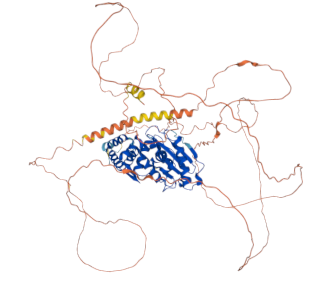Ancient Fossil Discovery in India Connects Climate Insights to Biodiversity

In a significant paleontological breakthrough, researchers have unearthed 24 million-year-old fossilized leaves in the Makum Coalfield of Assam, India. This discovery not only enriches the understanding of the region's ancient tropical climate but also establishes a crucial ecological link between Northeast India and the Western Ghats, a recognized biodiversity hotspot. The findings were reported by News9 in collaboration with TV BRICS on June 25, 2025.
According to Dr. Anjali Rao, a paleobotanist at the Indian Institute of Science, the fossilized leaves closely resemble the extant genus Nothopegia, a group of flowering plants currently limited to the Western Ghats. Dr. Rao elaborated, "This genus indicates that ancient Northeast India once flourished with tropical ecosystems, highlighting species migration influenced by climatic and geological changes."
The research team, supported by India's Ministry of Science and Technology, utilized advanced paleoclimatic reconstruction methods to analyze the conditions of the late Oligocene epoch, approximately 24 million years ago. Their findings revealed that the Makum region experienced warm, humid conditions akin to those of modern-day Western Ghats. This suggests that the area was once covered with dense tropical vegetation, which has since diminished due to tectonic activity and climate transformation.
Dr. Arun Patel, an environmental scientist at the Indian Institute of Technology, commented on the broader implications of this discovery. He noted, "The study underscores the vulnerability of biodiversity hotspots in the face of contemporary climate change. With over 60% of tropical endemic species at risk of extinction, urgent conservation measures are needed."
The connection between the fossilized flora and the current biodiversity of the Western Ghats is significant. The Western Ghats is recognized for its rich biodiversity, hosting numerous endemic species. The study indicates that the region's ancient ecosystems were not only diverse but also interconnected with other significant ecological zones, suggesting a complex web of species migration in response to climatic shifts.
The significance of this discovery extends beyond paleobotany. According to the World Wildlife Fund (WWF), effective conservation strategies are paramount. Dr. Lisa Grant, a conservation biologist with WWF, emphasized, "As we face escalating climate crises, understanding historical biodiversity patterns can inform current conservation efforts. Protecting these ancient refuges is essential for maintaining global biodiversity."
Looking ahead, experts agree that collaboration between paleontologists, climatologists, and conservationists will be crucial in addressing the challenges posed by climate change. Dr. Rao added, "Our findings not only provide insight into historical climates but also serve as a call to action for preserving the fragile ecosystems that remain today."
As India navigates the complexities of modern climate challenges, the lessons drawn from this ancient discovery may prove invaluable. The implications of this research highlight the necessity of integrating historical ecological data into contemporary conservation strategies, ensuring the protection of the world's biodiversity for future generations.
Advertisement
Tags
Advertisement





